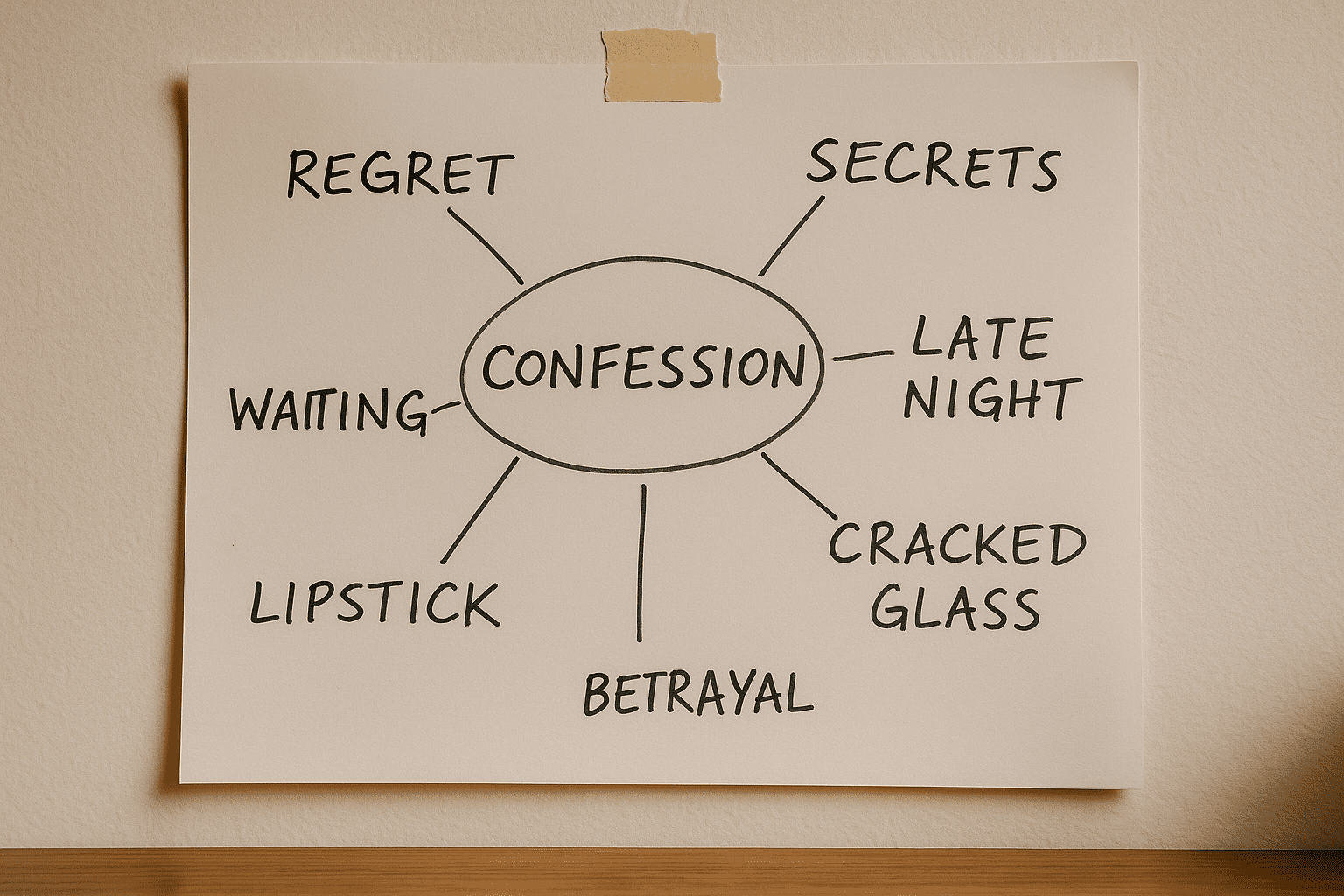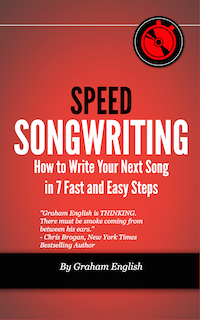
If you wait until you're knee-deep in your chorus to wonder what rhymes with "broken," you've already made your job harder than it needs to be.
Lyric writing isn't about inspiration striking like lightning. It's about preparation. About stacking the deck in your favor before you even write your first line.
And that means creating a solid, useful word and rhyme list before you start writing.
Here's how to do it like a prolific songwriter.
Why Bother?
Because your brain gets tired when it's juggling too many things—like story, rhyme, melody, and syllables—all at once.
Preparing a list of relevant words and rhymes ahead of time helps maintain your creative momentum.
It's like laying out all the ingredients before you start cooking. No more running to the fridge mid-song to figure out what goes next.
Step 1: Build a Core Word List from Your Song Plot
Start with your song plot—what the song is actually about.
Let's say your song is about a breakup that happened after a lie. That's your theme. From there, brainstorm 15–20 concrete, specific words related to that theme.
Not just "heartbreak" or "love"—those are too vague.
Get gritty. Get tangible. Try words like:
- lipstick on the collar
- voicemail
- slammed door
- silence
- late night
- confession
- whiskey
- truth
- cover-up
- cold coffee
You're painting a picture before writing a single lyric. You're not just describing the feeling—you're building the world that contains it.
Step 2: Build Rhyme Clusters
Now that you've got a word list, it's time to weaponize it.
Open your rhyming dictionary or app (RhymeZone, MasterWriter, B-Rhymes—pick your favorite).
Plug in your strongest words and build rhyme clusters. These are groups of 5–10 words that rhyme or near-rhyme with your key terms. For example:
If you chose "truth," your rhyme cluster might include:
- youth
- booth
- uncouth
- sleuth
- tooth
Now "truth" has options. You're no longer married to one line—you've got creative flexibility. Rhyme clusters give you freedom while keeping your ideas focused.
Step 3: Organize for Speed and Impact
Don't just keep your words in a messy pile. Sort them so you can grab what you need when you need it.
Here's one way to organize:
- By Emotion: anger, regret, joy
- By Tense: past, present, future
- By Syllable Count: helpful when matching a melody
Keep this list next to your lyric sheet. You'll use it when writing your swing lines, your hook, and especially your chorus. It's your cheat code.
Use This Simple Template
Want to skip the blank page freeze? Use this template as a repeatable system:
SONG TOPIC:
(Ex: Lying and heartbreak)
TONE/MODE:
(Ex: Sad, moody, Dorian mode)
CORE WORDS:
(Write 15–20 vivid, concrete words or phrases)
RHYME CLUSTERS:
Pick 3–5 of the strongest words from your core list and build out rhyme clusters for each.
ORGANIZED BY:
☐ Emotion
☐ Tense
☐ Syllables
Save it. Reuse it. Rewrite from it. This becomes your songwriting prep sheet.
Final Thought
You don't need to write your best lines on your first try. But you do need the right ingredients in front of you.
Having a solid word and rhyme list is like showing up to the studio with a fully stocked toolkit. You can work faster. You can improvise smarter. And you won't get stuck trying to rhyme "love" with "dove" again.
Don't freestyle the prep work. Get your words in order, and the lyrics will follow.

Enter your first name and email address below and click “GET ACCESS NOW!” to get the Speed Songwriting Cheat Sheet delivered to your inbox!
We guarantee 100% privacy. Your information will not be shared.

Leave a Reply